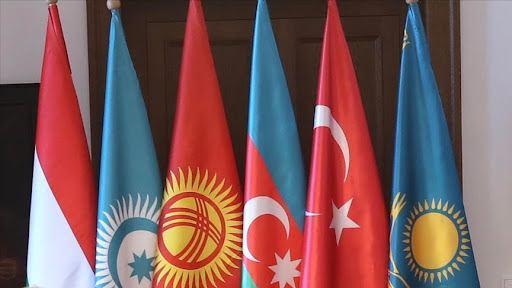Kazakhstan: Revocable setback

By Orkhan Amashov
|
The nagging question sullying the minds of those to whom the fate of Kazakhstan, as a central ingredient of the Turkic world, happens to be of deepest moment, is what the recent upheaval means for the country’s status as a balancing point among the world’s great powers and for the future of the Organisation of Turkic States (OST). Throughout its three decades of independence, the Central Asian nation has managed to enhance its sovereignty and forge strategic ties with Russia, China and the EU, establishing itself as an attractive investment destination and a serious international actor with an increasingly potent voice across the globe. Kazakhstan is also the territorially largest component of the OST and its geopolitical weight is key to the organisation’s clout and capabilities in projecting itself as a bloc to be reckoned with. The first point of contention is if there is anything the OST or its members could have done differently that could have had a bearing on the events that took place. The OST gained significant momentum after the Second Karabakh War, and the institutional changes formalised throughout 2021 gave rise to some hope that a closer form of unity is in the offing. Despite the aspirations of an ever-closer union, Turkic unity, in its present guise, does not have a military component as such. It does not have a collective defence mechanism providing some form of security for its members. The OST’s central premise is largely hinging on coordination, cooperation and mutual assistance in addressing domestic and international challenges, which is vague on its own and, most certainly, does not entail provisions on the use of peacekeeping forces. Therefore, it is only very natural that having lost its grip on the developments, the Kazakh government officially requested assistance from the Collective Security Treaty Organisation (CSTO) and not from the OST, and the former reacted promptly, deploying the peacekeeping forces to guard critical Kazakh infrastructure and allowing Kazakh forces to concentrate on tackling protesters. Against the backdrop of this, it appears that the ambition of the OST met a ‘reality check’ and the organisation failed its Kazakhstan test. The proponents of this view believe Azerbaijan’s victory in the war against Armenia has significantly emboldened Turkey’s ambitions and provided it with what one may figuratively call a springboard for further penetration into Central Asia, and the CSTO’s involvement in Kazakhstan has cast an aspersion on the legitimacy of Ankara’s ambitions in the region. For example, geopolitical analyst Michael Tanchum is of the opinion that “Russia’s intervention” was an “important cautionary signal” for Turkey and a warning for the OST members that “their ambitions should not outrun their capacity.” Turkey, despite its recognised role as a rising Eurasian agenda-setter, does not, at present, have sufficient muscle in Central Asia. Its influence, which is yet relatively nascent, is based on soft power. There is a school of thought that the strong military alliance existing between Azerbaijan and Turkey should be projected into the wider Turkic world, but such a development, to put it mildly, is far from being a foregone conclusion. Turkey has recently taken quite a few steps to enhance its military ties with Kazakhstan by increasing defence industry exports, in addition to educating and training Kazakh military personnel, but its role is nowhere near that played by Russia, which rents an anti-ballistic missile testing range together with a spaceport known as Baikonur Cosmodrome. If militarily there is not much that Turkey could have done, the same does not perhaps apply to the exercise of diplomatic leverage. Although it cannot be asserted with absolute certainty, it seems that Ankara was not ready for the developments and its insufficiently expeditious reaction bespeaks the absence of a certain degree of preparedness that could have been deduced with intelligence information. Turkey acted with extreme caution and conspicuous neutrality. The official diplomatic response did not go beyond underscoring the importance of stability and security. The recent setback is, however, not an event of unfettered fatality and is limited in terms of fallout. Turkey remains a power with its own capacity to reorient connectivity across the Caspian basin and Central Asia. Ankara’s penetrative capabilities remain strong. Ankara and the West share common interests in Central Asia in terms of breaking the region’s isolation and limiting its dependence on Moscow and Beijing. Both Ankara and Brussels are interested in promoting east-west corridors as opposed to the traditional Kremlin-dominated North–South or Beijing-perpetuated East–West pipelines, roads, railways and other critical infrastructure. The recent developments in Kazakhstan constitute a significant setback for the nation’s fortunes. The vital task that lies ahead is to protect the country’s sovereignty and multi-vectored outlook which previously served it well, and to ensure the hard-won gains of the past. |
Follow us on Twitter @AzerNewsAz
Here we are to serve you with news right now. It does not cost much, but worth your attention.
Choose to support open, independent, quality journalism and subscribe on a monthly basis.
By subscribing to our online newspaper, you can have full digital access to all news, analysis, and much more.
You can also follow AzerNEWS on Twitter @AzerNewsAz or Facebook @AzerNewsNewspaper
Thank you!
